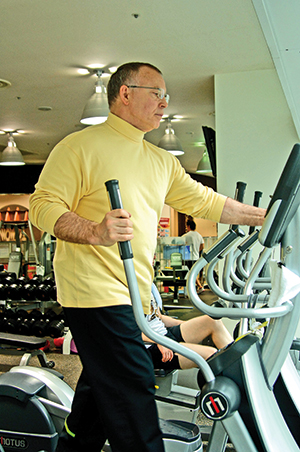 “Are you sure you’ve got the right Chuck Wilson?” The man across the table is obviously joking, but the question still gives me a moment’s doubt—the Chuck Wilson I had arranged to meet is a power lifting champion, judo expert, and former television personality.
“Are you sure you’ve got the right Chuck Wilson?” The man across the table is obviously joking, but the question still gives me a moment’s doubt—the Chuck Wilson I had arranged to meet is a power lifting champion, judo expert, and former television personality.
The man I’m talking to is large, but not remarkably so, dressed in a well cut jacket more suited to a business man than a body builder. And though he appears at ease, he doesn’t exude the confidence I had expected—many of his statements are accented by an somewhat shy laugh. In short, he is not what I was expecting. He is, however, the Chuck Wilson I’m after, and at 63, he is well aware that his personality and public persona are at odds with each other, and success has been a constant series of challenges.
“It seems that my life has been spent trying to overcome myself,” he laughs.
A misdiagnosis after a case of rheumatic fever at a young age, combined with a transient family life, left Wilson feeling like a social misfit throughout his childhood. “From five to fifteen I was not allowed to participate in any athletic events, or play any sports, or even take a physical education class. You know children, especially male children, are involved in athletic pursuits, so if you’re not, then you’re not allowed into the ‘child society.’ I wore glasses, so I was one of these weak little kids, and got bullied, and picked on, you know, kids are like that. So, in fact, I was sentenced to a certain type of life, by doctors who misdiagnosed what I had. It probably wasn’t a large misdiagnosis, but it was enough to lay the blueprint for the kind of adult I would become.
“Also, we moved all around the country, so there were no real roots to put down—I guess the longest place I was ever stayed was Michigan, and even then, we moved around the state. I avoided relationships, because I’d be gone in six months, or a year later. I still don’t make friends readily. There’s a negative side to that, psychologists and sociologists will tell us, but there’s a good side too—total independence. When you’re completely self-reliant, you tend to shy away from anything you might come to rely on, because it affects your sense of independence.
“At the age of fifteen, [the doctors] said, ‘this was not what we thought, so now you’re free to do what you want.’ I started weight training as soon as I got the all clear. Maybe I super-compensated, but it was better than the way I had compensated before. Even though my grades were good, my social context got me expelled on a regular basis. I’d been in reform school from age twelve to fifteen. I was getting beat up, involved in altercations, and arrested by juvenile authorities for… not criminal behavior, really, just delinquent behavior.
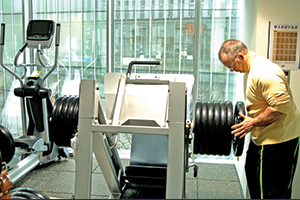 “All the things that as a child I didn’t have, as a young man and as an adult I wanted, and I still do. When I finished high school, I was about the size I am now. Entering high school I was about half this size, about 50 kilos. A growth spurt contributed to it, and very, very long weight training workouts, simply to build myself up to the size where I wouldn’t have to worry about walking down the street and getting assaulted. Because in the places I grew up, if you walked down the street and you looked like you couldn’t take care of yourself, you were always targeted for robbery, assault, mugging. Hence, my getting involved in the martial arts—I realized simply being large just wasn’t enough, and the multi-colored ads were pretty convincing. “But when you get into it, you’ve got the oriental philosophy, and that had social ramifications—you participated in it to make yourself physically and mentally and morally strong, so that you could benefit society. Certainly in judo, it’s clearly delineated. There’s two components of Judo: seiryoku zeny, which is using the other person’s strength against him, and then there’s jita kyoei, which is mutual welfare and benefit. The idea is that when you practice with your opponent, he’s not just somebody to beat, he also benefits you by being your opponent, because by combating with him you realize your weaknesses, you realize your strengths. To many extents that benefits society at large, because you are strong and you have a defined identity, a defined moral dictate. There has to be a social benefit in what you do otherwise there is not a lot of worth in doing it.
“All the things that as a child I didn’t have, as a young man and as an adult I wanted, and I still do. When I finished high school, I was about the size I am now. Entering high school I was about half this size, about 50 kilos. A growth spurt contributed to it, and very, very long weight training workouts, simply to build myself up to the size where I wouldn’t have to worry about walking down the street and getting assaulted. Because in the places I grew up, if you walked down the street and you looked like you couldn’t take care of yourself, you were always targeted for robbery, assault, mugging. Hence, my getting involved in the martial arts—I realized simply being large just wasn’t enough, and the multi-colored ads were pretty convincing. “But when you get into it, you’ve got the oriental philosophy, and that had social ramifications—you participated in it to make yourself physically and mentally and morally strong, so that you could benefit society. Certainly in judo, it’s clearly delineated. There’s two components of Judo: seiryoku zeny, which is using the other person’s strength against him, and then there’s jita kyoei, which is mutual welfare and benefit. The idea is that when you practice with your opponent, he’s not just somebody to beat, he also benefits you by being your opponent, because by combating with him you realize your weaknesses, you realize your strengths. To many extents that benefits society at large, because you are strong and you have a defined identity, a defined moral dictate. There has to be a social benefit in what you do otherwise there is not a lot of worth in doing it.
“I graduated from high school, I went to two years of college, and then I applied to Boston University School of Rehabilitative Medicine. I was accepted the same day I got my notice to take my physical for the draft. I grew up in a very conservative area, and so I wasn’t aware of the enormity of what America did in Vietnam, I just wanted to stay alive. As soon as I got my notice, I immediately went down and joined the air force, because the air force fulfilled the military obligation. I knew that unless you graduated from college you couldn’t fly an airplane, and with my eyes and my heart, I couldn’t anyway. My mechanical ability wouldn’t get me near an airplane, so I spent three years basically playing judo for the air force team.”
Despite this confession, Wilson is clearly ambitious. When he was discharged from the armed services in Korea, he came to Japan. “My grand plan was to come here, spend six months and become strong enough to win a berth on the Olympic team, then win the American Championships, and take a shot at the World Championships. And then, perhaps I’d return to the United States at some point and open up my own judo school,” he laughs at this now. “I arrived in Japan in 1970, with high expectations of what I could do, because I’d been in Korea for a year, and I thought I was pretty good. But when I came here, I found that I really wasn’t very good at all by the Japanese standard, and winning contests wasn’t really what judo was all about.”
Did Wilson finally feel at home in Japan? “You know, everybody comes here and they compare it to where they were. And they compare it to relationships and to cultural identity, and I had none of that. I didn’t fit in back in the United States, but in Japan, if you’re foreign, you have an intrinsic freedom to create your own persona, since there are no social dictates. I spent three years in Kyoto.”
This sense of comfort, however, made Wilson uneasy, and he started looking for new challenges. “I moved up from Kyoto, got out of the trap of complacency and comfort, economic stability, and moved to Tokyo. My judo in Kyoto had reached a peak where I could not really progress that much further, so I looked to practice in Tokyo at the keisatsusho, which is arguably the toughest practice in Japan. At that time it was very spartan in its approach to training in general, and when it came to a westerner coming to the Metropolitan Police School, it was exceptionally spartan. They did their best initially to discourage me, but it was also a proving ground. It took me from the time I was 27 to the time I was 35 to stop shaking every time I went to practice. Essentially you walk into a situation where you have 50 people that are there to beat you as decisively as they can. In judo there are throws, and there are chokes, and there are arm bars and there are hold downs and some of these things can be applied with sufficient enthusiasm to cause genuine injury—it was never a life or death situation, but there were certain times when you certainly felt it was.”
In the meantime, Wilson had secured a career at the Clark Hatch Physical Fitness Center in Tokyo, doing much what he does now in his own company: helping people become fitter and healthier.
“I started working for Clark in 1973. By today’s standards the facility was somewhat primitive—everything was manual, and because everything was manual you had to take blood pressure, count their pulse beats and calculate in your head whether they were exerting themselves too much.”
When Hatch, a pioneer in fitness training, expanded his practice to other countries throughout Asia, Wilson agreed to take over the running of the Tokyo business.
“At the time he left, we had 600 members. One and half years later we had 1200 members.” Wilson is clearly proud of this achievement, though he remains bewildered by his natural business skills. “It flourished. It was so easy for me.”
Although the original membership had been mainly expatriates, the new members were mostly Japanese, including a corporate membership belonging to the Dentsu Corporation, which provided Wilson with another new challenge.
“One of our members was in charge of this new television show, called “Sekai Marugoto How Much,” which was based on the American show the “Price is Right.”
“On television, you had to go through this whole act of being effervescent and affable, an over-the-top kind of thing, and it was the antithesis of my personality. You know, I’m very happy in front of the computer, and I’m very happy listening to music and reading a book and I’m very happy when things don’t represent confrontation. But I recognize that you can’t get anywhere being overly concerned about yourself, you have to get out there. Life is not observation. Life is participation. I think you continually have to test yourself. I recognized that if I kept doing it I’d get good enough, and pretty soon I’d build up a callus—because I have no calluses, and a lot of times my emotions are right out there to be kicked around. But you’ve got to get tough, you can’t sit back, you can’t just observe.”Despite the discomfort, fame gave Wilson the platform he needed to promote his real passion: fitness. “My idea was using the entertainment business as a means to expand on the knowledge of health and fitness in Japan, which certainly needed it, and still does.
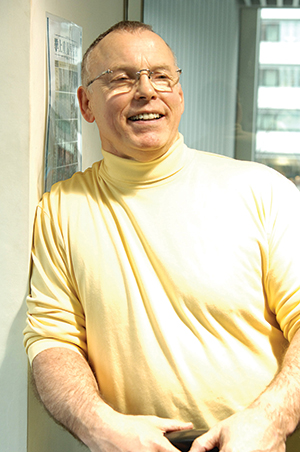 “It was the dark ages—in many ways it still is. Have you seen your average high school baseball player, after he gets done in high school, trying to move his arms? It’s just absurd! There are still people who do squat jumps to strengthen the knees. There are still baseball coaches who work their kids to death, literally to death! There are still juveniles, 9 and 10 years-old who die from dehydration—in the 21st century! In a wealthy society, you just don’t expect this depth of ignorance. I can get hot about this, I can get very hot about this. To create one good athlete they use and abuse hundreds. Hundreds! It’s almost criminal. And yet it’s a quantum leap from what it was 40 years ago.”
“It was the dark ages—in many ways it still is. Have you seen your average high school baseball player, after he gets done in high school, trying to move his arms? It’s just absurd! There are still people who do squat jumps to strengthen the knees. There are still baseball coaches who work their kids to death, literally to death! There are still juveniles, 9 and 10 years-old who die from dehydration—in the 21st century! In a wealthy society, you just don’t expect this depth of ignorance. I can get hot about this, I can get very hot about this. To create one good athlete they use and abuse hundreds. Hundreds! It’s almost criminal. And yet it’s a quantum leap from what it was 40 years ago.”
Changes in this field come slowly, and if Wilson has made a discernable impact anywhere, it is felt most strongly in his charity work, where his efforts, his passion and his childhood collide in the highly successful charity runs which benefit disabled children through the YMCA.
“It is something to be proud of. If there’s any great work that I’ve ever done, I think that would qualify. You’ve created something that would surpass your own lifetime, and it’s used to create funds and benefit for the bottomless pit of suffering—you can’t eliminate the suffering in the world—man’s incredible ability to be inhuman, and it’s primarily men, and whatever drives them, testosterone or whatever it is.
“Now we have 15 runs in 15 cities a year and we generate between 40 and 60 million yen per year, and we have helped and assisted thousands and thousands of handicapped kids. They have a volunteer camp for two weeks for these children, they send them to these camps and they have fun for two weeks. Now that is something worth talking about.”
Wilson tells me that he has never managed to develop a “callus,” and it is perhaps this thin-skinned sensitivity which pushes him towards change. Perhaps it is because Wilson as a child showed little promise to do great things that he believes that “things are not beyond your reach. All things are possible, well, not all things, but certainly more than most people are willing to challenge.
“Calculated risk is not really risk, but you’re putting your emotional self on the line, and most people are not willing to do that, because the downside is so great. But let me tell you, talking from the position of somebody who has worn his emotions on his shoulder since he was a child, and who has run the risk of severe emotional pain, the rewards are certainly worth it. Everybody gets opportunity, you just need to have enough confidence to reach out and grab that opportunity and ride it, and take it where it leads you, and not be afraid of it.”
Story by Skye Hohmann
From J SELECT Magazine, June 2009

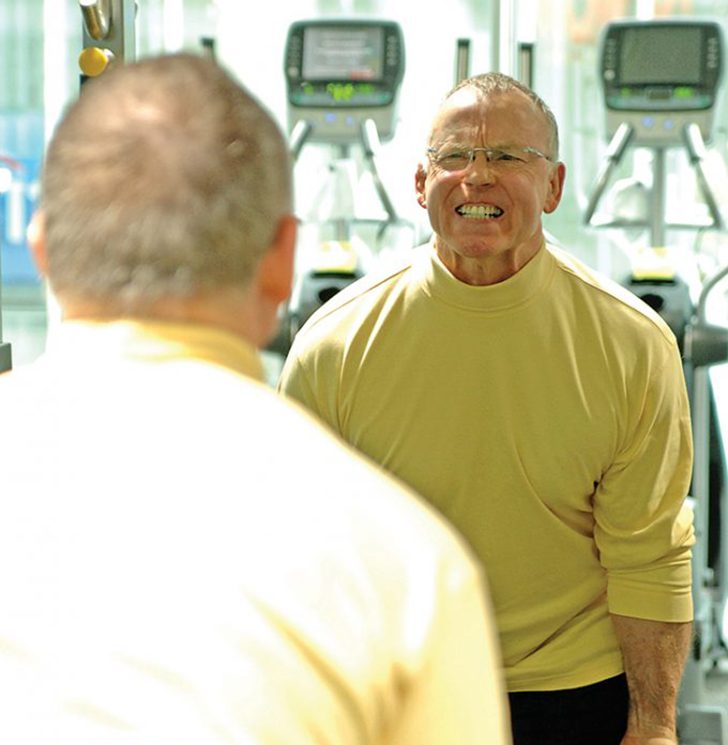


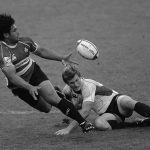
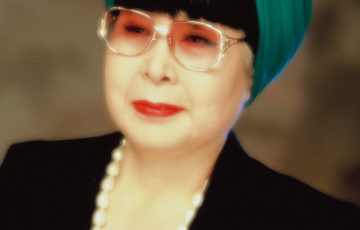

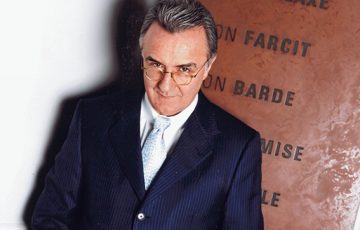
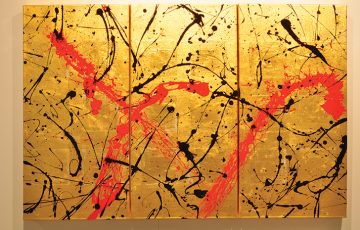
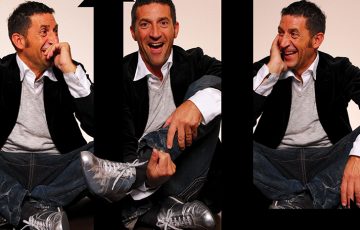
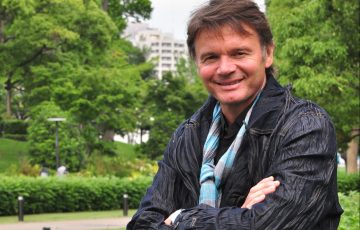
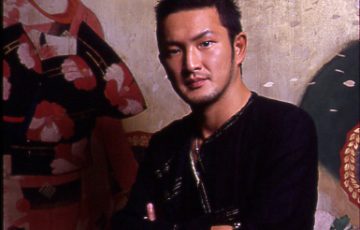
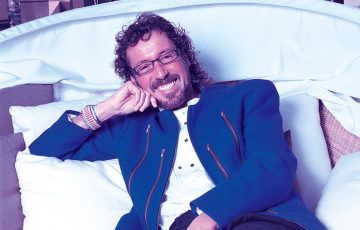


Recent Comments